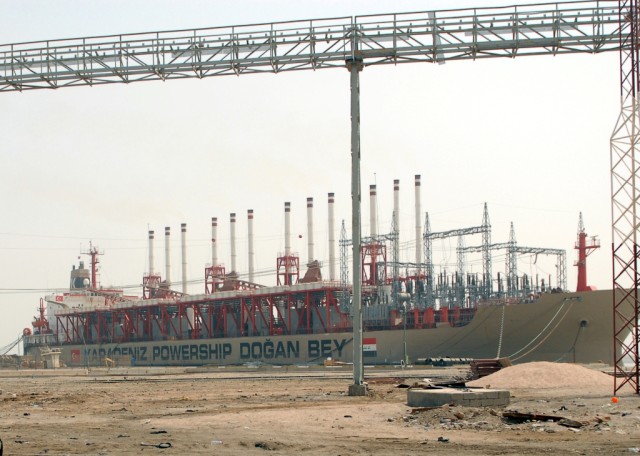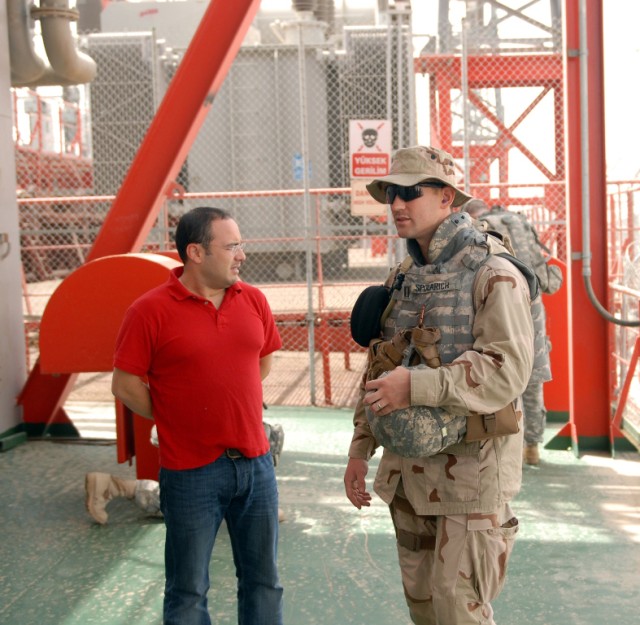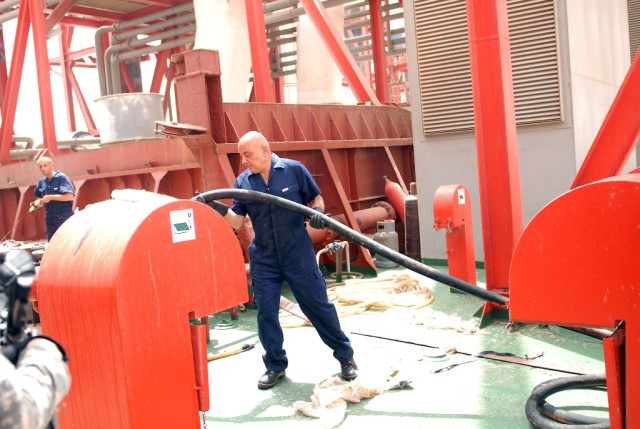The Government of Iraq has been concentrating on providing basic necessities to its people while striving to maintain order and security.
Electricity has been an issue Iraqis are concerned about. In the southern city of Basra and throughout Iraq demonstrations have been held demanding more reliable power.
In response, steps are in place to help ease the power problems.
In the southern port of Umm Qasr, the hub of imports and exports for the country, a large ship sits moored to the docks. It is adorned with Turkish and Iraqi flags painted on the side, and large transformers cover the majority of the deck.
"It's like an on-land power facility," said Coast Guard Lt. j.g. Frank Bullock, a logistic coordinator with the Joint Interagency Task Force. Reciprocating generators on the deck of the ship use a refined fuel provided by the Iraqi Department of Energy. The electricity is run to the Iraqi power grid. This ship alone has the ability to power Umm Qasr with some left over, he said.
"So far, we have had no security incidents," said the plant manager and ship captain, Mutlu Cevlik, a Turkish sailor from Istanbul. A five-year contract has been signed with the Iraqi Department of Energy for the ship to provide power, he said. A second ship has also been dispatched from Turkey.
Security cameras and local guards have been hired to help secure the ship, Cevlik said. Around 70 people from Umm Qasr keep the ship safe 24 hours a day. Onboard, Turkish workers keep the generators maintained and running.
"Sand storms are the biggest problem," Cevlik said. The generators operate as close to full capacity as possible, but during periods of high wind, sand and dirt get caught in the filters causing overheating and automatic shutdowns.
Cevlick is confident issues like these will be easy to get around. The next step is to hire a security officer to help bring the ship up to international safety standards.
"We want to make this environment better," Cevlick said.






Social Sharing